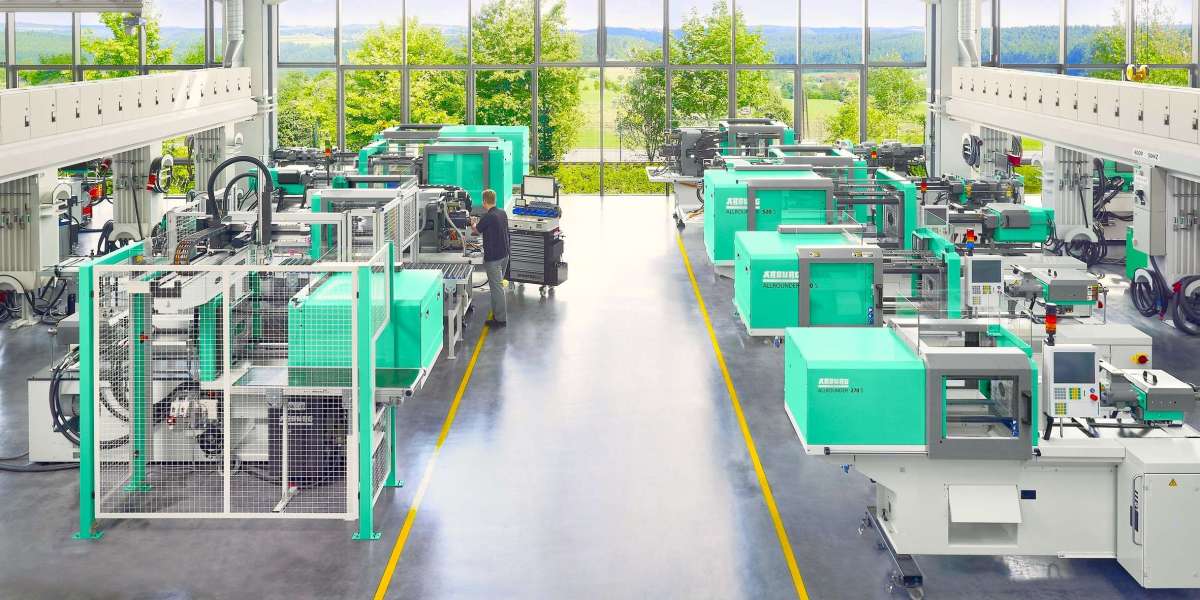Injection moulding is one of the most widely used manufacturing processes in the world. This versatile method allows companies to create high-precision, durable, and cost-effective plastic components at scale.
Industries across the board—from automotive to medical, electronics to aerospace—depend on injection mould tooling to produce everything from small intricate components to large structural parts.
In this article, we’ll explore the key industries that use injection mould tooling and how this manufacturing process benefits them.
Automotive Industry
The automotive industry is one of the largest users of injection mould tooling. Car manufacturers rely on plastic components to reduce vehicle weight, improve fuel efficiency, and enhance durability. Many of these parts are produced using injection moulding due to its ability to create complex shapes with high precision.
Common Injection Moulded Automotive Parts:
- Dashboard components
- Bumpers and grilles
- Interior panels and trim
- Door handles and armrests
- Lighting system components
- Electrical connectors
Why Injection Moulding?
- Lightweight materials help improve fuel efficiency
- Durability ensures parts can withstand wear and tear
- Cost-effective production enables mass manufacturing at low costs
- Customization allows for various colors, textures, and finishes
Medical And Healthcare Industry
Injection mould tooling plays a crucial role in the medical industry, where precision and hygiene are critical. Many medical devices, instruments, and disposables are made using injection moulding due to the need for high-quality and sterilizable materials.
Common Injection Moulded Medical Products:
- Syringes and IV components
- Surgical instruments
- Medical enclosures and housings
- Prosthetics and orthopedic implants
- Laboratory testing equipment
Why Injection Moulding?
- Medical-grade plastics like polypropylene and polycarbonate ensure safety
- Sterility is maintained with FDA-approved materials
- Precision manufacturing is required for tight tolerances
- Scalability allows mass production of disposable medical items
Consumer Electronics Industry
From smartphones to home appliances, injection moulding is widely used in the electronics industry. The process enables manufacturers to create lightweight and durable enclosures for electronic components, protecting them from environmental factors.
Common Injection Moulded Electronic Components:
- Laptop and smartphone casings
- Remote control housings
- Power adapters and connectors
- Switches and buttons
- Wearable device enclosures
Why Injection Moulding?
- High-precision moulding ensures small, intricate designs
- EMI shielding materials protect sensitive electronic components
- Lightweight plastics help reduce product weight
- Rapid prototyping allows quick design modifications
Aerospace And Defense Industry
The aerospace industry requires parts that are lightweight, strong, and resistant to extreme conditions. Injection moulding helps create components that meet these demanding specifications.
Common Injection Moulded Aerospace Parts:
- Interior cabin components (tray tables, seat parts, etc.)
- Electrical connectors and wiring harnesses
- Airflow ducting and ventilation parts
- Structural components for drones and UAVs
Why Injection Moulding?
- Lightweight materials help reduce aircraft weight for fuel efficiency
- High-performance polymers withstand extreme temperatures and pressures
- Precision manufacturing ensures compliance with strict regulations
- Cost savings enable production of high-quality parts at lower costs
Packaging Industry
The packaging industry depends heavily on injection moulding to create strong, lightweight, and visually appealing packaging solutions. Many food and beverage containers, as well as cosmetic and pharmaceutical packaging, are made using this process.
Common Injection Moulded Packaging Products:
- Bottle caps and closures
- Food containers and lids
- Cosmetic jars and dispensers
- Pharmaceutical pill bottles
- Plastic trays and clamshell packaging
Why Injection Moulding?
- Consistency and uniformity in mass production
- Food-grade plastics ensure safety and hygiene
- Lightweight materials reduce shipping costs
- Custom branding through color, texture, and labeling
Industrial And Construction Industry
Injection moulded parts are also used in industrial and construction applications where durability and resistance to harsh environments are required.
Common Injection Moulded Industrial Parts:
- Pipes and fittings
- Electrical junction boxes
- Fasteners and brackets
- Safety equipment (helmets, goggles, etc.)
- Heavy-duty storage bins and pallets
Why Injection Moulding?
- Strength and durability for demanding applications
- Weather resistance to withstand outdoor conditions
- High-volume production at an affordable cost
- Chemical resistance for use in industrial settings
Toy And Recreation Industry
Toys and recreational products are another major area where injection mould tooling is widely used. The ability to produce colorful, durable, and safe plastic parts makes this process ideal for the industry.
Common Injection Moulded Toys And Recreational Products:
- Action figures and dolls
- Building blocks (e.g., LEGO)
- Sporting equipment (helmets, grips, etc.)
- Outdoor play structures and slides
Why Injection Moulding?
- Safe, non-toxic plastics ensure child safety
- Vibrant colors and shapes are achievable through customization
- Durability allows toys to withstand frequent use
- Cost-effective mass production keeps toys affordable
Manufacturing The Modern World
Injection mould tooling is a cornerstone of modern manufacturing, enabling a wide range of industries to produce high-quality plastic components efficiently. From the automotive sector to healthcare, electronics, aerospace, and beyond, this process provides the precision, scalability, and durability needed for countless applications.
As technology advances, the role of injection moulding continues to evolve, with innovations in biodegradable plastics, 3D-printed moulds, and smart materials further expanding its capabilities. Whether you're in product development or large-scale manufacturing, injection mould tooling remains an essential technique for creating reliable and cost-effective plastic parts.


